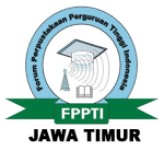Automation Based Library Management in Depok Public Library In The Context of Ritual Performance
Downloads
Library management using manual system is no longer adequate to handle the workload in the library routines, librarians must use application of library automation. To provide a good working performance, librarians use strategy, competences and certain habits, which are referred to as a ritual performance. The performance of the ritual is the demonstration of competence spontaneously by individuals in dealing with individuals, groups and organizations, which contains elements of personal ritual, the work ritual, social ritual, and organization ritual. The research focuses in the automation based library management in the context of the performance of the ritual. This study used a qualitative approach with case study method. The findings suggest that the personal ritual shows the personal habits of librarians to do their tasks, ritual librarian's work show responsibility towards their duties, social rituals strengthen the emotional connection between librarians and leaders, as well as ritual organizations suggest the involvement of librarians in giving their contribution in decision making. Conclusions of this study shows that the performance of rituals librarian at Depok Public Library gives librarians the skills to implement automation systems in the library management, and reflect the values of responsibility, mutual trust, and mutual respect.
Downloads
Dacin, M. T., Kamal M., and Paul T. (2010). Formal dining at cambridge colleges: Linking ritual performance and institutional maintenance. The Academy of Management Journal, 53, 1393-1418. Retrieved from http://www.jstor.org/stable/29780264
Hasugian, J. (2006). Penelusuran informasi ilmiah secara online: Perlakuan terhadap seorang pencari informasi sebagai real user. Pustaha: Jurnal Studi Perpustakaan dan Informasi, 2.
Indonesia. (2007). Undang-undang Republik Indonesia nomor 43 tahun 2007 tentang perpustakaan.
Indranata, I. (2008). Pendekatan kualitatif untuk pengendalian kualitas. Jakarta: UI Press.
Islam, G., and Michael J. Z. (2009). Rituals in organizations: A review and expansion of current theory. Group Organization Management, 34, 114-139. Retrieved from http://gom.sagepub.com/cgi/content/abstract/34/1/114.
Laksmi. (2012). Interaksi interpretasi dan makna. Bandung: Karya Putra Darwati.
Patil, V. (2013). Library automation and networking: Need and importance of maharashtra public libraries. Journal of Advances in Library and Information Science, 2, 152-156. Retrieved from www.jalis.in
Pegu, T., and Prafulla, K.M. (2014). A comparative study on library automation among the college libraries of Sivasagar and Dibrugarh District in Assam. 9th Convention PLANNER-2014 Dibrugarh University. Retrieved from http://hdl.handle.net/1944/1803
Pendit, P. L. (2007). Perpustakaan digital: Perspektif perpustakaan perguruan tinggi indonesia. Jakarta: CV. Sagung Seto.
Perpustakaan Nasional RI. (2014). Tentang INLIS lite. Retrieved from http://inlislitev2.perpusnas.go.id/
Pickard, A.J. (2007). Research methods in information. London : Facet Publishing.
Robbins, S. P., and Timothy, A J. (2007). Organizational behavior (20th Ed.). Pearson Prentice Hall.
Spradley, J. P. (2006). Metode etnografi. Yogyakarta: Tiara Wacana
West, R, & Turner, L. (2010). Introducing communication theory : Analysis and application. New York: Mc-Graw Hill.
Wirawan. (2007). Budaya dan iklim organisasi: Teori aplikasi dan penelitian. Jakarta: Salemba Empat.
Zahaira F González, F. G. (2012). Rituals and their transcendence in corporate culture. Journal of Arts and Humanities, 2(3), 21-34. Retrieved from http://search.proquest.com/docview/1651009539?accountid=17242
Record and Library Journal by Unair is licensed under a Creative Commons Attribution-ShareAlike 4.0 International License.
1. The journal allows the author to hold the copyright of the article without restrictions.
2. The journal allows the author(s) to retain publishing rights without restrictions
3. The legal formal aspect of journal publication accessibility refers to Creative Commons Attribution Share-Alike (CC BY-SA).
4. The Creative Commons Attribution Share-Alike (CC BY-SA) license allows re-distribution and re-use of a licensed work on the conditions that the creator is appropriately credited and that any derivative work is made available under "the same, similar or a compatible license”. Other than the conditions mentioned above, the editorial board is not responsible for copyright violation.


 57201398420
57201398420

























